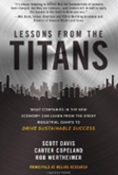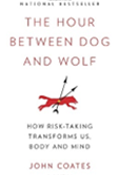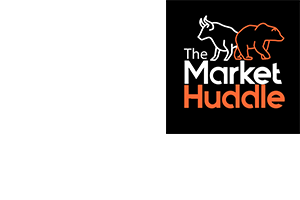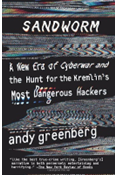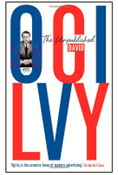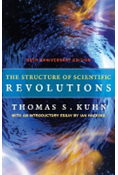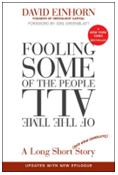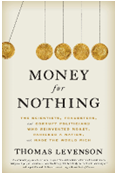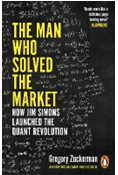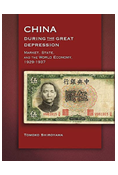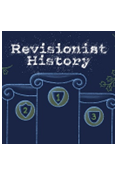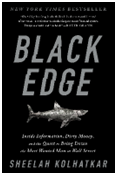Summer 2023 Investment team book and podcast list
School’s almost out, so we’ve asked the Investment team for some of their recent reading recommendations and podcast proposals to help kick off the start of summer!
Lessons from the Titans: What Companies in the New Economy Can Learn from the Great Industrial Giants to Drive Sustainable Success
by Scott Davis, Carter Copeland and Rob WertheimerThe name says it all. A deep dive into how industrial companies of the past became household names. It looks at both their successes and mistakes.
Recommended by Frank
![]()
The Hour Between Dog and Wolf: How Risk Taking Transforms Us, Body and Mind
by John CoatesFascinating look at the physiological changes that takes place when one is under pressure in the trading environment.
Recommended by Greg
![]()
Great guests, combined with plenty of banter…these guys don’t take themselves too seriously and are also very smart.
Recommended by Greg
![]()
Sandworm: A New Era of Cyberwar and the Hunt for the Kremlin's Most Dangerous Hackers
by Andy GreenbergElite Russian hackers successfully hit power grids and multinational companies around the world, causing tens of billions of dollars in damages. This isn’t a spy novel, but a WIRED journalist’s deep dive into the exploits of a possibly state-sponsored group of cyberterrorists. Full of stories like how compromising Ukrainian tax software took down shipping giant Maersk (and how the company was saved by a server in Ghana that went down due to a power outage).
Recommended by Jeff
![]()
The Unpublished David Ogilvy
by David OgilvyUnorthodox, passionate and a visionary. He had a first-class business mind.
Recommended by Tye
![]()
The Structure of Scientific Revolutions
by Thomas S. KuhnEver wonder how investors are often blind to regime changes in the stock market? Well, they’re human. Unfortunately, scientists are human as well. Unfortunately, this means that they have the same faults that humans have. Biases, vested interest, someone writing their cheques…the list goes on. The publishing of this book in 1962 is still described as a landmark event in the history and philosophy of science. Find out how the greatest scientific innovations that caused a paradigm shift in understanding was pooh-poohed by those hanging on to their old, irrelevant and wrong models. You’ll see the parallels with “science” today and the investing world as well. Enjoy.
Recommended by Geoff
![]()
Fooling Some of the People All of the Time, A Long Short (and Now Complete) Story
by David EinhornBefore private debt funds and private real estate funds, there were business development companies, or BDCs – investment vehicles making private loans to private companies. David Einhorn wrote a book about shorting one of the largest, a company called Allied Capital, and the absurdity in how fanciful private investment returns are reported. In the 10 years from 1997 to 2007, Allied Capital delivered 17% compound annualized return in a perfectly straight line. Then it lost 80% of its value and was sold for pennies on the dollar. That’s how Ponzi-schemes end – a steaming pile of…misery. Allied Capital failed and so will many private investment vehicles. Before you buy any, you should read this.
Recommended by Derek
![]()
Grant's Current Yield (podcast)
The people behind Grant’s Interest Rate Observer, Jim Grant and Evan Lorenz, talk with guests about a variety of financial topics.
Recommended by Derek
![]()
Hayek: A Life, 1899–1950
by Bruce Caldwell and Hansjoerg KlausingerA biography of the person most-often tied to the Austrian school of economics and neoliberalism, Friedrich Hayek. It focuses on the first half of his life and how it affected his views and those of the many people he influenced.
Recommended by Harry
![]()
Money for Nothing: The Scientists, Fraudsters, and Corrupt Politicians Who Reinvented Money, Panicked a Nation, and Made the World Rich
by Thomas LevensonThe book chronicles the evolution of the South Sea Company and related financial engineering and speculative mania. Lots of great modern analogies
Recommended by Lee
![]()
I Am Home (podcast) – Ted Weschler and Todd Combs
Rare interviews from the other two guys running money at Berkshire Hathaway.
Recommended by Steven
![]()
The Man Who Solved the Market: How Jim Simons Launched the Quant Revolution
by Gregory ZuckermanThis is a book about Jim Simons who founded and started Renaissance Technologies which is the largest quant hedge fund in the world as far as I know. It’s a really good book and, at the time it was being written, campaigning for the 2016 U.S. presidential election was ongoing. I won’t spoil it, but you get a pretty interesting look inside that process just given some notable figures in the book.
Recommended by Alex
![]()
The Price of Time: The Real Story of Interest
by Edward ChancellorThis is literally a book that details several thousand years of interest rate history, why interest rates exist, why low interest rates don’t work in the long run, etc. It is an exhaustive but very informative book and I think its pretty topical right now. All things considered – I would not recommend this to anyone who has a short attention span but if you are willing to get through it, the book certainly provides some valuable insight.
Recommended by Alex
![]()
This is a great podcast I listen to occasionally. As you would expect, they just breakdown different businesses – their operating models, history and how they came to be. They don’t just do public companies which is what makes it really interesting. They have podcasts on professional sports leagues for example and private luxury brands so it’s a nice complement to the businesses we look at on a day-to-day.
Recommended by Alex
![]()
The Alchemists: The INEOS Story - An industrial giant comes of age
by James RatcliffeA fun read of how Jim Ratcliffe bet on himself and built INEOS. You may have not heard of INEOS which is private, but the company is one of the largest chemical conglomerates in the world and makes chemicals for products that you likely use everyday. The name Jim Ratcliffe may sound more familiar as he is currently in the pole position to acquire Manchester United.
Recommended by George
![]()
China during the Great Depression: Market, State, and the World Economy, 1929–1937
by Tomoko ShiroyamaDuring the Great Depression, China’s economy was not as significant but it was still impacted by the global economy. The book describes how agriculture and manufacturing (mainly textile at the time) suffered while the housing market in Shanghai was heated which increased the risk of the whole financial system. The case studies of the government intervention and corporate debt restructuring can still be relevant today.
Recommended by Tracey
![]()
Malcolm Gladwell’s Revisionist History (podcast) – The Columbia University College Rankings Scandal
I really enjoyed this Malcolm Gladwell podcast on Columbia University’s college rankings scandal. It’s a powerful story of incentives and poorly designed systems. There are some interesting analogies to ESG greenwashing, “gaming” index fund inclusion, etc.
Recommended by Andrew
![]()
Black Edge: Inside Information, Dirty Money, and the Quest to Bring Down the Most Wanted Man on Wall Street
by Sheelah KolhatkarGood piece of investigative journalism on the hedge fund industry. It focuses on the seven-year government insider-trading investigation into Steven A. Cohen and his firm SAC Capital.
Recommended by Jin
![]()
Junk to Gold: From Salvage to the World's Largest Online Auto Auction
by Marla J. Pugh and Willis JohnsonThe story behind the creation of the auto salvage marketplace business model, as told by the founder of Copart, Willis Johnson.
Recommended by Jason
![]()
